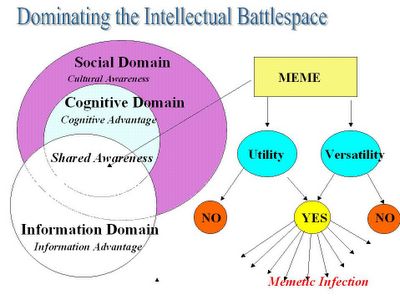Sunday, May 29th, 2005
HISTORY IS NOT JUST THE PROPERTY OF HISTORIANS
This week HNN ran an exceptional essay by Dr. David Greenberg that delved deeply into the divide between professional, academic historians and ” popular” historians like the late Stephen Ambrose and David McCullough. Academic historians usually regard the latter with bitter disdain. Greenberg attempted to look at the two sides with some evenhandedness and objectivity – at least more than professional historians usually evince:
This month marks the publication of 1776, David McCullough’s rousing, feel-good tale of how George Washington led a ragtag crew of continental soldiers into their fateful battle for independence. It’s safe to predict that 1776—the latest in a series of heavily hyped history blockbusters—will vault to the top of the best-seller lists, beguiling readers with its reverent portrait of Washington’s heroism and the dulcet cadences of McCullough’s finely wrought prose.
It will also drive many academic historians up the wall.
Our exasperation will stem partly, to be sure, from envy of McCullough’s undeniable gift for storytelling and of his smashing popularity. But my academic colleagues will (or should) raise legitimate objections to the approach of a book like this—the surfeit of scene-setting and personality, the meager analysis and argument, the lack of a compelling rationale for writing about a topic already amply covered. McCullough’s fans won’t care. They typically have little use for what they regard—not always wrongly—as the narrowly focused, politically correct, jargon-clotted academic monographs that dwell on arcane issues instead of big, meaty topics like politics, diplomacy, and war.
Instead of grumbling over the public’s middlebrow book buying tastes, the best thing academic historians can do is to try to offer them something better. A number of our own practices lead us away from engaging the public as we should. I’ve seen students entering graduate school aspiring to write like Arthur Schlesinger, only to be shunted into producing pinched, monographic studies. I’ve seen conferences full of brilliant minds unable to find an interesting presentation to attend that isn’t literally read off the page in a soporific drone. We write too much for each other—and, as we do, a public hungry for good history walks into Barnes & Noble and gets handed vapid mythmaking that uninformed critics ratify as “magisterial” or “definitive.”
Aside from the natural division between horizontal-thinking generalists and often arcane specialists operating at very high level of vertical expertise, the problem academics have with popular or amateur historians is really one that is self-referential.
First, academic historians, even those used to teaching freshmen year survey courses have a misleadingly skewed view of the level of basic historical knowledge among the general public. University profs tend to deal most often with other experts or aspiring experts ( grad students) in their own field. Recall that college students are usually in the top two deciles of the Bell Curve in terms of intelligence and their knowledge and analytical prowess in terms of history is often exceptionally spotty. These freshmen then represent a mental baseline for most historians but unfortunately its the wrong one to use when writing for the general public.
Trying to then go out and write a history book that can be enjoyed and understood by the remaining 80 % of the population after spending extended time in that narrow, rarified, campus environment is hard. Academic historians often wildly underestimate the degree to which the fundamentals must be coherently explained before the public can grasp the point the historian would really like to make. Good storytelling is important because it is the ” hook” for the reader to follow the subsequent analysis. We’re mentally ” wired” for narrative structures, not expository writing, which is why no one likes to read their computer software instruction manuals.
The second point of self-referentiality is, I’m sorry to say, whether anyone likes to hear it or not, political. Holding even a ” mainstream” or ” centrist” position in the historical profession puts you very far to the Left of the general public, in terms of the mean on critical issues of public policy. And no, it isn’t always greater amounts of knowledge that lead historians to the ” correct” conclusions -that is simply an arrogant conceit -it’s a difference of values.
Eric Foner’s political desire to substitute Social-Democracy for the currently influential libertarian definition of ” Freedom” in American culture is a result of personal philosophy and preference for socialist politics – not an inarguable conclusion drawn from his research on intellectual and political history. I can agree with Dr. Foner the presentation of his evidence without accepting his normative judgement in his conclusion.
The combination of poorly prefaced writing, esoteric Left positions, use of weird jargon and the media’s preference for sound bites makes academic historians look more than a little nuts to the public when something radical pops into their USA Today front page article. The media’s editing style is not the fault of the historian but it is a reality to be considered when making an argument in the popular press.
Historians, for all the good work they do and the analytical skills they cultivate, do not ” own ” history. No group does. History is the intellectual commons of humanity for everyone to take from or add to with the only appropriate standard of judgment being truth.





